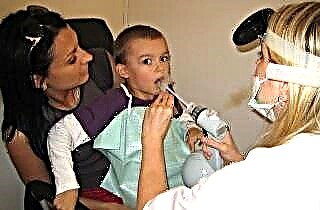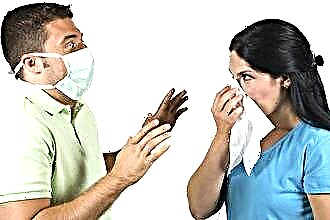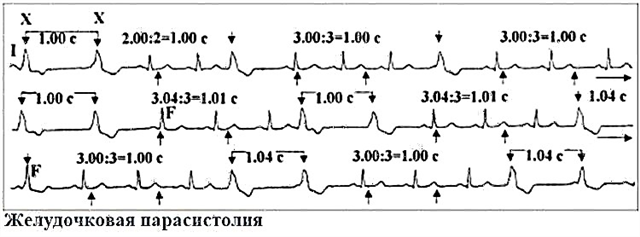Inflammation of the tonsils is not as common in children as it might seem at first glance. But if the child really has a sore throat, then this is not an easy test for him and the parents. If treated incorrectly, the disease can become chronic, and then sore throats will happen several times a year. Well-known Russian pediatrician E.O. Komarovsky.
How not to confuse with ARVI
 Doctor Komarovsky strongly discourages self-treatment of chronic tonsillitis. In order to prevent the transformation of the disease into a chronic form, the baby should be under the supervision of a doctor, who, if necessary, will correct the course of therapy in time. Moreover, parents do not know about many features of the course of angina and young children.
Doctor Komarovsky strongly discourages self-treatment of chronic tonsillitis. In order to prevent the transformation of the disease into a chronic form, the baby should be under the supervision of a doctor, who, if necessary, will correct the course of therapy in time. Moreover, parents do not know about many features of the course of angina and young children.
Unfortunately, not only young parents, but also inexperienced pediatricians are confused with ARVI and even the common cold. Having found a severely reddened throat, the baby immediately begins to be stuffed with antibiotics, sometimes only further inhibiting the already not fully formed immune defense.
Komarovsky claims that babies up to 3-4 months of age cannot have sore throats at all. A baby is not born with tonsils! These are formations, consisting mainly of lymphoid tissue, which are formed by about six months, and they begin to fully fulfill their protective function even later, by about 8 years.
The main difference between ARVI or colds from any form of tonsillitis, including chronic, is the absence of severe cough, runny nose and swelling of the nasal mucosa.
But there are other characteristic symptoms by which the disease can be identified:
- enlarged and painful lymph nodes;
- a yellowish or white coating on the tonsils;
- difficulty breathing and swallowing;
- refusal of water and drink;
- characteristic purulent odor from the mouth;
- headaches and ear pains;
- nausea, vomiting, chills;
- pain in the abdomen and / or joints.
 With acute angina or severe exacerbation of chronic tonsillitis, multiple ulcers may appear on the tonsils and an increase in body temperature to 39OC and above. In such situations, self-treatment is unacceptable.
With acute angina or severe exacerbation of chronic tonsillitis, multiple ulcers may appear on the tonsils and an increase in body temperature to 39OC and above. In such situations, self-treatment is unacceptable.
Only a doctor can diagnose chronic tonsillitis. Moreover, for such a diagnosis, only two components are enough - the constant presence of foci of inflammation on the tonsils and frequent exacerbations of tonsillitis - up to 3-4 times a year.
During the period of attenuation, some symptoms of tonsillitis are absent, others are implicitly expressed: mild sore throat, a slight increase in temperature, a general decrease in motor activity, restless sleep, poor appetite, etc.
Possible complications
Inexperienced parents often do not pay enough attention to chronic tonsillitis, believing that the child will outgrow and the body will cope with the disease itself. Komarovsky insists that such a position is not only unacceptable, but also extremely dangerous.
Tonsillitis is an infectious disease, which means that pathogenic microflora is constantly present in the baby's body.
 The most common causative agent of sore throat is streptococcus, which, while protecting itself from antibodies attacking it, is capable of producing a special toxin that gradually poisons other organs.
The most common causative agent of sore throat is streptococcus, which, while protecting itself from antibodies attacking it, is capable of producing a special toxin that gradually poisons other organs.
By the time a child could "outgrow", due to constant intoxication of the body, he has time to develop multiple complications:
- pyelonephritis;
- rheumatism;
- arthrosis;
- cardiomyopathy;
- chronic otitis media;
- snoring or sleep apnea.
The infection can migrate along the mucous membranes of the respiratory tract, provoking sinusitis, bronchitis and even pneumonia.
Naturally, all this has an extremely negative effect on the physical and mental health of the child: he is often sick, cannot communicate normally with peers, and can hardly cope with the physical activity prescribed by age.
Treatment according to Komarovsky
Treatment of chronic tonsillitis according to Dr. Komarovsky should be reduced to the prevention of its exacerbations and strengthening the immune defense of the baby. But if the sore throat still attacked, and the child's condition is satisfactory, Komarovsky advises pediatricians not to use antibiotics until 2-3 days of illness, but to do with folk and anti-inflammatory drugs.
This approach activates the baby's own defenses and forces the body to independently try to overcome the infection. If the body temperature does not rise above 38.5OC, and in babies - up to 38OWith, it is not necessary to use antipyretic "Aspirin", "Paracetamol". It is better to give the baby more linden tea or rosehip decoction - this will cleanse the body of toxins, bring down the temperature and strengthen the immune system.
Any medications that are bought in a pharmacy should only be prescribed to a baby by a doctor, even if they are completely natural! Especially when it comes to topical antibiotics, which contain such popular lozenges as "Faringosept", "Septefril" and others. Cough syrups are all the more ineffective, since there is practically no cough in angina.
But traditional methods of treatment are welcome:
 warm milk with the addition of soda, goat fat or cocoa butter;
warm milk with the addition of soda, goat fat or cocoa butter;- weak herbal decoctions, teas, anti-inflammatory preparations;
- freshly squeezed vegetable juices: lemon, beetroot, carrot, cabbage - for gargling;
- aromatherapy: eucalyptus, fir, cedar, pine, lavender, mint, tea tree oil will heal the throat and at the same time purify the air in the room;
- rubbing with turpentine, camphor, warming balms are at the same time an excellent inhalation.
Komarovsky repeatedly drew the attention of parents to the too frequent use of such a popular remedy for the treatment of tonsillitis as Lugol's solution. Indeed, it is a practically harmless drug, which consists mainly of iodine and glycerin and gives a quick positive effect. But an overdose of iodine can cause a child to malfunction of the thyroid gland, and as a result, the entire endocrine system.
An important element of treatment is bed rest, which must be observed at least until the temperature drops. Proper nutrition - excludes everything sour, salty, spicy and too hot. This will not irritate the throat and will keep the baby strong.
The room in which the sick child is located must be ventilated several times a day (the baby must be taken out or covered warmly for this time) and cleaned at least once a day, wiping off dust from all surfaces. As soon as the baby recovers, start walking from 10-15 minutes a day, gradually lengthening the walking time to an hour.
And, of course, during the entire course of treatment, the little patient must be under the supervision of a doctor.
If, during an exacerbation of chronic tonsillitis, heal it until complete recovery, and then regularly carry out supportive therapy and strengthen the immune system, chances are good that in just 2-3 years you can cope with this disease. And by the age of 12, the tonsils begin to gradually atrophy, and the child will be able to forget about tonsillitis forever.
Whether to do the operation
The tonsils perform an important protective function in the child's body. They are the first to get in the way of microbes, a stream of cold air or water. Having lost such protection, the child often begins to get sick with bronchitis and even pneumonia, since the infection freely passes deep into the respiratory tract.
Dr. Komarovsky is categorically against surgical removal of tonsils, unless it is really necessary for medical reasons:
 the child is constantly sick with sore throats - more often 4-5 times a year;
the child is constantly sick with sore throats - more often 4-5 times a year;- the tonsils are so enlarged that they interfere with normal breathing and swallowing;
- the child has impaired articulation due to overgrown tonsils;
- night snoring and apnea appeared and intensified;
- immunity has greatly decreased, and the baby is constantly sick;
- complications began to develop.
Removal of tonsils is carried out under local anesthesia and is less traumatic. If the operation is performed on modern equipment using ultrasound, a laser scalpel or a cryogenic unit, then there is practically no blood, and the risk of infection of the postoperative wound is minimal.
But there are situations when, for medical reasons, surgical intervention becomes impossible: with heart disease, renal or hepatic failure, blood clotting disorders, cancer and autoimmune diseases. In this case, at least twice a year, a course of preventive treatment is carried out to prevent exacerbations, which necessarily includes immunomodulatory drugs.
Prevention of tonsillitis
Dr. Komarovsky is one of the few reputable doctors whose opinion on the use of antibiotics for the treatment of children is unequivocal. He believes that they should be used in extremely limited quantities and only when necessary. And with most diseases, the child's body must cope on its own, including with chronic tonsillitis.
Komarovsky believes that the only way to develop his own defense in a baby is targeted training and strengthening the immune system. The measures that he proposes for this are somewhat non-standard, but quite effective.
They have already been tested by thousands of mothers all over Russia:
- Completely exclude the independent use of any medications, especially pills and topical sprays, which mothers begin to pour into the baby's mouth at the slightest reddening of the throat.
- Physical activity and hardening procedures: the child should move a lot, walk, swim in open reservoirs in summer and take a contrast shower at any time of the year.
 Proper nutrition - the baby should receive vitamins and minerals not from colorful jars, but from their fresh fruits and vegetables, which should be on the table every day.
Proper nutrition - the baby should receive vitamins and minerals not from colorful jars, but from their fresh fruits and vegetables, which should be on the table every day.- Rational organization of the daily routine - sufficient time for sleep, active games, compulsory communication with peers (even if one of them snotty!).
- Do not overheat the child - for his delicate mucous membranes there is nothing more dangerous than high temperatures and too dry indoor air.
- To prevent the development of allergic reactions - household chemicals, perfumes, ashtrays should not be in the baby's room, and wet cleaning should be done in it daily.
- Do not avoid temperature contrast - eat ice cream, drink cold water, play outdoor games in winter.
These measures activate the work of the entire immune system, of which the tonsils themselves are an integral part. Thus, over time, they will indeed be able to protect themselves from infection without the use of potent drugs.

 warm milk with the addition of soda, goat fat or cocoa butter;
warm milk with the addition of soda, goat fat or cocoa butter; the child is constantly sick with sore throats - more often 4-5 times a year;
the child is constantly sick with sore throats - more often 4-5 times a year; Proper nutrition - the baby should receive vitamins and minerals not from colorful jars, but from their fresh fruits and vegetables, which should be on the table every day.
Proper nutrition - the baby should receive vitamins and minerals not from colorful jars, but from their fresh fruits and vegetables, which should be on the table every day.

